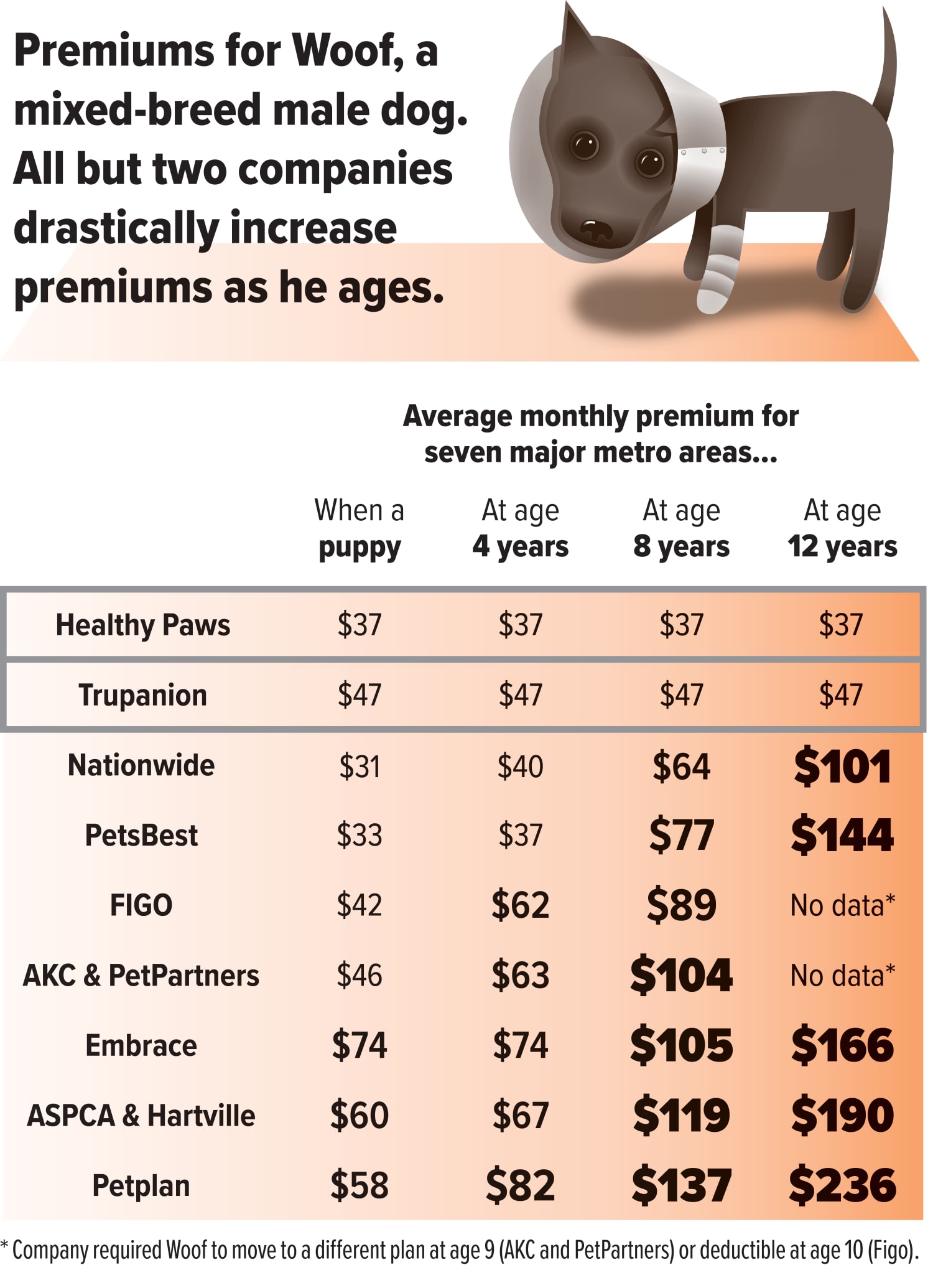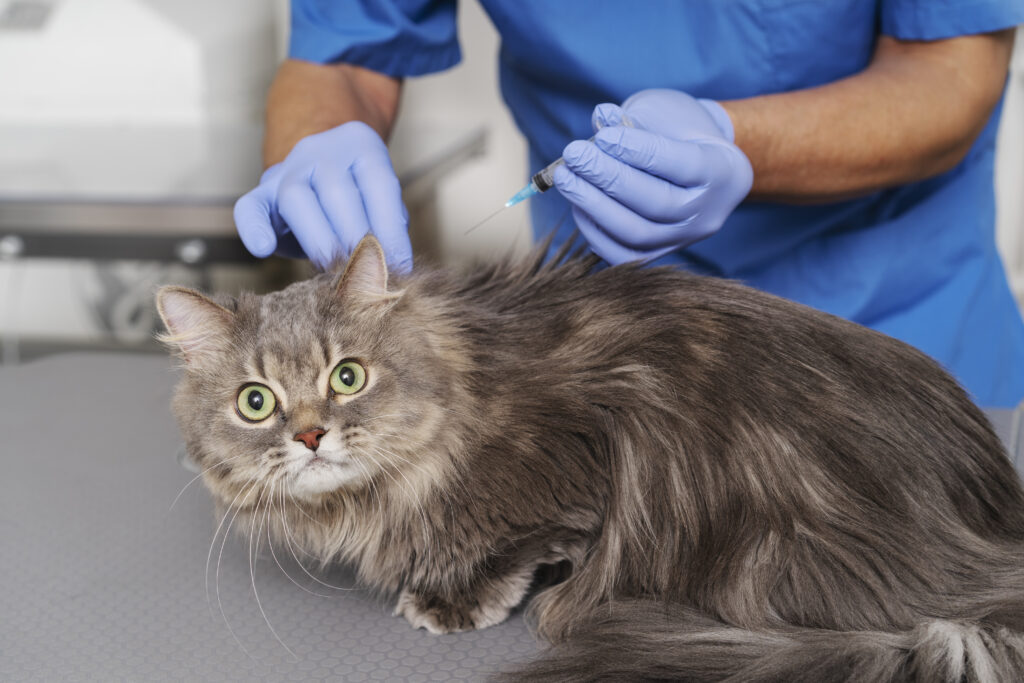Health insurance for dogs helps cover veterinary costs, ensuring your pet receives necessary medical care without financial strain. It typically includes coverage for accidents, illnesses, and routine care.
Dogs, like humans, can experience unexpected health issues. Veterinary bills can quickly add up, making health insurance a valuable investment for pet owners. Policies often cover a wide range of services, from emergency treatments to routine check-ups. By having health insurance, you can focus on your dog’s well-being without worrying about the cost.
Many insurance plans offer customizable options, allowing you to choose the best coverage for your pet’s needs. Investing in health insurance ensures your dog receives the best care possible throughout its life.

Credit: todaysveterinarybusiness.com
The Importance Of Health Insurance For Dogs
Dogs are more than pets; they are family. Ensuring their health is a priority. Health insurance for dogs is crucial for their well-being. It helps manage unexpected costs and ensures your furry friend gets the best care.
Why Your Furry Friend Needs Coverage
Dogs can fall sick or get injured. Health insurance ensures they receive prompt treatment. It covers vaccinations, surgeries, and regular check-ups. This keeps your dog healthy and happy.
Insurance also provides peace of mind. You won’t worry about high vet bills. You can focus on your dog’s health instead.
Unexpected Costs Of Canine Care
Canine care can be expensive. Emergencies like accidents or sudden illnesses can cost a lot. A broken leg or ingestion of harmful objects can lead to hefty bills.
| Canine Care Situation | Approximate Cost |
|---|---|
| Emergency Surgery | $1,500 – $5,000 |
| Cancer Treatment | $2,000 – $8,000 |
| Regular Check-ups | $50 – $250 |
Health insurance covers these unexpected costs. You won’t have to choose between your dog’s health and your wallet. It ensures your dog gets the best care without financial stress.
Types Of Dog Health Insurance Policies
Understanding the various types of dog health insurance policies can be overwhelming. This guide will help you understand the options. With the right information, you can choose the best policy for your furry friend.
Accident-only Plans
Accident-only plans cover injuries caused by accidents. These include car accidents, bites, and broken bones. They do not cover illnesses or preventive care.
- Affordable option for pet owners on a budget.
- Quick to process claims for sudden injuries.
- Does not cover routine check-ups or vaccinations.
Accident-only plans are ideal for young, healthy dogs. It’s a good option if you want basic coverage.
Comprehensive Coverage Options
Comprehensive coverage options provide extensive protection. They include accidents, illnesses, and preventive care. These plans offer peace of mind for pet owners.
| Feature | Details |
|---|---|
| Accidents | Covers injuries from accidents. |
| Illnesses | Covers a wide range of illnesses. |
| Preventive Care | Includes vaccinations and routine check-ups. |
Comprehensive plans are perfect for dogs with chronic illnesses. They also suit dogs prone to accidents. The plans offer extensive coverage to keep your pet healthy.
Choose the plan that fits your dog’s needs. Accident-only plans are budget-friendly. Comprehensive plans offer full protection.
What To Look For In A Good Policy
Finding the right health insurance for your dog can be tricky. You need to know what makes a good policy. This section will help you understand the key factors to look for.
Coverage Scope And Limitations
A good policy should cover a wide range of health issues. These include accidents, illnesses, and routine care.
- Accidents: Injuries from falls or car accidents.
- Illnesses: Common diseases like cancer or diabetes.
- Routine Care: Vaccinations and annual check-ups.
Check the limitations of the policy. Some policies may not cover pre-existing conditions. Others might have age limits for coverage. Make sure to read the fine print.
Understanding Deductibles And Co-pays
Deductibles are the amount you pay before the insurance starts to cover. Lower deductibles mean higher premiums and vice versa.
Co-pays are the percentage you pay after the deductible. For example, a 20% co-pay means you pay 20% of the vet bill.
| Deductible | Co-pay | Your Cost |
|---|---|---|
| $100 | 20% | You pay $100 + 20% of the remaining bill. |
| $200 | 10% | You pay $200 + 10% of the remaining bill. |
Choose a plan that fits your budget and needs. Understanding these terms helps you pick the best policy for your dog.

Credit: www.nbcnews.com
Comparing Insurers: Finding The Best Fit For Your Pooch
Choosing the right health insurance for your dog is crucial. With many insurers available, finding the best fit can be challenging. This section will help you compare insurers effectively.
Customer Service And Reputation
Customer service is vital when selecting an insurer. You want an insurer who is available and responsive.
Check online reviews to see customer experiences. Positive reviews often indicate good service.
Reputation matters too. An insurer with a good reputation is more reliable.
Here’s a table comparing customer service and reputation of top insurers:
| Insurer | Customer Service Rating | Reputation Score |
|---|---|---|
| Insurer A | 4.5/5 | 9/10 |
| Insurer B | 4.0/5 | 8/10 |
| Insurer C | 3.5/5 | 7/10 |
Ease Of Claims And Reimbursement
Filing claims should be simple. Complicated processes can be frustrating.
Check if the insurer offers online claims. This can save time.
Reimbursement speed is also crucial. You don’t want to wait long for your money.
Below is a list of important factors to consider:
- Online claims submission
- Clear documentation requirements
- Quick reimbursement
Look at the example of top insurers:
| Insurer | Online Claims | Reimbursement Speed |
|---|---|---|
| Insurer A | Yes | 1 week |
| Insurer B | No | 2 weeks |
| Insurer C | Yes | 3 weeks |
Age And Breed Considerations
Choosing health insurance for your dog involves many factors. Age and breed play crucial roles in determining the right plan. Puppies and senior dogs have different needs. Similarly, breed-specific conditions can affect coverage options.
Pricing Differences For Puppies Vs. Seniors
Insurance costs vary between puppies and senior dogs. Puppies are generally healthier. Thus, their insurance premiums are lower. Senior dogs often face more health issues. This raises their insurance costs.
| Age Group | Average Monthly Premium |
|---|---|
| Puppies (0-1 year) | $20 – $30 |
| Adults (1-7 years) | $30 – $50 |
| Seniors (8+ years) | $50 – $100 |
Breed-specific Conditions And Coverage
Different breeds have unique health risks. For instance, Bulldogs often suffer from respiratory issues. German Shepherds may face hip dysplasia. These conditions impact insurance coverage and cost.
- Bulldogs: Respiratory issues, skin conditions
- German Shepherds: Hip dysplasia, elbow dysplasia
- Labradors: Obesity, joint issues
- Poodles: Eye problems, epilepsy
Insurance plans may exclude breed-specific conditions. Always read the policy details carefully. Ensure that your dog’s specific needs are covered.

Credit: www.petofy.com
Preventive Care Inclusions
Health insurance for dogs often includes preventive care. This keeps your furry friend healthy and reduces vet bills. Here’s what preventive care can include:
Vaccinations And Routine Check-ups
Vaccinations protect dogs from serious diseases. Common vaccines include rabies, parvovirus, and distemper. Routine check-ups help catch health issues early. Regular vet visits ensure your dog stays healthy.
| Type of Vaccine | Purpose |
|---|---|
| Rabies | Prevents rabies infection |
| Parvovirus | Prevents parvo disease |
| Distemper | Prevents distemper virus |
Dental Care And Spaying/neutering
Dental care is vital for your dog’s health. Clean teeth prevent infections and other issues. Spaying or neutering reduces the risk of certain cancers and behavioral problems.
- Reduces cancer risk
- Prevents overpopulation
- Improves behavior
Regular dental check-ups are essential. Healthy teeth lead to a healthier life for your dog.
Navigating Pre-existing Conditions
Health insurance for dogs is important. But, navigating pre-existing conditions can be tricky. This section will help you understand and manage these conditions.
What Constitutes A Pre-existing Condition?
A pre-existing condition is any health issue your dog had before getting insurance. These can include:
- Chronic illnesses like diabetes or arthritis.
- Past injuries like broken bones.
- Congenital conditions your dog was born with.
Insurance companies often exclude these from coverage. Knowing what counts as pre-existing helps you choose the right plan.
Tips For Insuring Dogs With Medical History
Here are tips for insuring dogs with medical history:
- Start Early: Insure your dog while they are young and healthy.
- Full Disclosure: Always disclose all medical history. Transparency is key.
- Read the Fine Print: Understand what is excluded from the policy.
- Compare Plans: Look for plans that offer the best coverage for pre-existing conditions.
| Insurance Company | Coverage for Pre-Existing Conditions | Exclusions |
|---|---|---|
| Company A | Limited | Chronic illnesses |
| Company B | Moderate | Past injuries |
| Company C | Extensive | Congenital conditions |
Making The Most Of Your Dog’s Health Insurance
Making the most of your dog’s health insurance ensures your furry friend stays healthy. Understanding how to use the insurance helps you save money and avoid stress. Let’s explore some key strategies to maximize your dog’s health insurance benefits.
Regularly Reviewing And Updating Your Policy
Reviewing your policy keeps you informed about the coverage. Policies change, and so do your dog’s health needs. Check the policy every six months.
- Look for any new exclusions or conditions.
- Ensure the policy covers your dog’s current health needs.
- Compare with other insurance options to get the best deal.
Updating your policy is crucial. If your dog develops new health issues, update the policy. This ensures coverage for new treatments or medications.
How To Advocate For Your Dog’s Health Claims
Advocating for your dog’s health claims can seem daunting. But it is essential for getting the best care. Follow these steps to make the process smooth:
- Keep all vet records and receipts.
- Document any treatments and medications.
- Submit claims promptly to avoid delays.
Communicate clearly with the insurance company. Provide detailed information about your dog’s condition. This helps in faster claim approval. Always follow up on submitted claims.
Using your dog’s health insurance wisely ensures they get the best care possible. Regularly review and update your policy, and advocate for your dog’s health claims. This keeps your dog healthy and happy.
Real-life Stories: The Value Of Coverage In Action
Health insurance for dogs offers peace of mind and financial relief. Real-life stories show the true value of pet insurance. These stories highlight how timely treatment and financial protection make a difference.
Success Stories Of Timely Treatment
Timely treatment can save a dog’s life. Meet Bella, a playful Golden Retriever. One day, Bella ate something toxic. Her owner, Sarah, rushed her to the vet. Thanks to her insurance, Bella got immediate care. The vet treated Bella without delay. Bella recovered quickly and returned to her playful self.
Next is Max, a curious Beagle. Max broke his leg while playing. His owner, John, didn’t worry about the cost. Insurance covered Max’s surgery and rehab. Max healed well and is back to his adventures.
How Insurance Saved Owners From Financial Strain
Vet bills can be expensive. Insurance helps ease the burden. Take Daisy, a lively Labrador. Daisy developed a severe infection. Her treatment cost thousands of dollars. Daisy’s owner, Lisa, used her insurance. This saved Lisa from a huge financial strain. Daisy got the best care without any delay.
Another story is about Bruno, a brave German Shepherd. Bruno needed an emergency surgery. His owner, Mike, was worried about the cost. But his insurance covered it all. Mike focused on Bruno’s recovery without financial stress.
| Dog | Issue | Owner | Outcome |
|---|---|---|---|
| Bella | Toxic Ingestion | Sarah | Quick Recovery |
| Max | Broken Leg | John | Full Recovery |
| Daisy | Severe Infection | Lisa | Best Care |
| Bruno | Emergency Surgery | Mike | Stress-free Recovery |
Steps To Secure Tail-wagging Coverage
Health insurance for dogs helps manage unexpected medical costs. Follow these steps to find the best coverage. Your furry friend deserves the best care.
Assessing Your Dog’s Healthcare Needs
Start by understanding your dog’s healthcare needs. This involves considering their age, breed, and lifestyle.
- Age: Puppies and older dogs often need more medical attention.
- Breed: Some breeds are prone to specific health issues.
- Lifestyle: Active dogs may face injuries more often.
Consult your veterinarian for a health assessment. This helps identify any pre-existing conditions.
Selecting The Right Policy And Provider
Choosing the right policy and provider is crucial. Look for coverage that fits your dog’s needs.
| Feature | Details |
|---|---|
| Coverage | Check if it covers accidents, illnesses, and routine care. |
| Premium | Ensure the premium fits within your budget. |
| Deductibles | Lower deductibles mean higher premiums and vice versa. |
| Reimbursement | Understand the percentage of costs the policy will cover. |
Compare multiple providers to find the best deal. Read reviews and ask for recommendations.
Frequently Asked Questions
What Are The Three Types Of Pet Insurance?
The three types of pet insurance are accident-only, accident and illness, and wellness plans. Accident-only covers injuries. Accident and illness cover both injuries and diseases. Wellness plans cover routine care like vaccinations.
Does Pet Insurance Actually Help?
Yes, pet insurance helps by covering unexpected veterinary costs. It provides financial relief during emergencies and ensures better care for your pet.
What Is The Best Age To Get Dog Insurance?
The best age to get dog insurance is as early as possible, ideally when your dog is a puppy. Early insurance covers unexpected health issues.
Can You Have A Dog Without Insurance?
Yes, you can have a dog without insurance. However, covering vet bills and emergencies might become expensive.
What Is Dog Health Insurance?
Dog health insurance helps cover veterinary costs. It ensures your pet receives timely medical care without financial stress.
How Does Dog Health Insurance Work?
Dog health insurance reimburses a percentage of your vet bills. You pay premiums and submit claims for covered services.
What Does Dog Health Insurance Cover?
It typically covers accidents, illnesses, surgeries, and medications. Some plans also include wellness visits and vaccinations.
How Much Does Dog Health Insurance Cost?
Costs vary based on breed, age, and coverage. On average, expect to pay $30-$50 per month for comprehensive plans.
Conclusion
Investing in health insurance for dogs ensures they receive the best care. It can save you from unexpected costs. Protect your furry friend’s health and your wallet. Choose the right plan and enjoy peace of mind. Your dog deserves the best, just like any family member.







